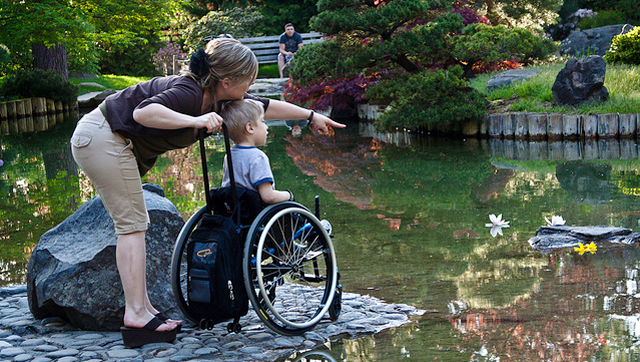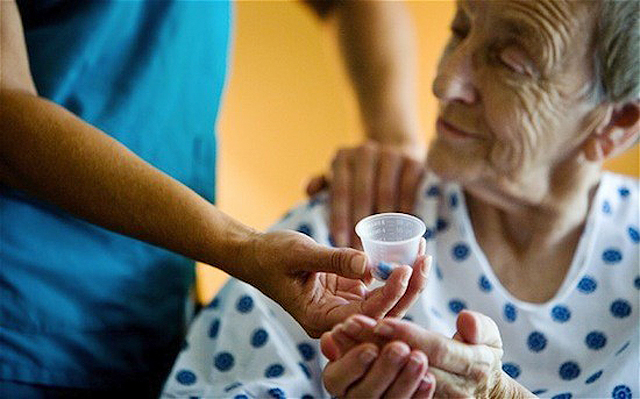Our oral and dental health is a vital part of our general health and overall well-being, and an incredibly important part of our daily lives. People with special needs are particularly susceptible to an increased risk for oral diseases and these can have a devastating impact on their health both in the short and long term.

The number of people with special needs who require oral health services is rising dramatically in both Tasmania and Australia, with this unmet need for treatment becoming much more difficult to overcome for these important people within our community. Many reports and studies show that people with disabilities and those in aged care have more dental disease, more missing teeth, and more difficulty in obtaining dental care than any other member of the general population.
Caring for a special needs patient takes time, compassion, and understanding. Health and dental care for individuals with special needs requires particular knowledge, increased awareness and attention, adaptation, and accommodative measures beyond those that are considered routine. Whilst most dental practices can accommodate for special needs patients, there are only a few dentists who dedicate a focus on meeting the needs and working within the limitations of these patients.
When a person is not able to sit still for long periods of time, is unable to comprehend any proposed treatment, has general mobility concerns, or has particular fears or phobias of dental treatment, then these patients are particularly suitable to dental treatment under various forms of sedation rather than admission to a hospital. This includes the following:
- Ageing and elderly people. Aged care residents often need more frequent dental visits to manage tooth wear, decay, pain, and the effects of medications that they or their carers are unable to detect. People with Dementia and Alzheimer’s are particularly susceptible to oral diseases due to their inability to maintain adequate oral health, comprehend their treatment needs, or adequately voice their complaints regarding pain experience. For this group of people, dental treatment without any form of sedation either in a dental practice or in hospital is unfortunately often impossible.
- Individuals with decreased mobility. Patients with mobility issues may need assistance getting in and out of the dental chair, as well as to and from the dental practice. These persons may find that having any treatment in a dental chair quite uncomfortable due to severe osteoarthritis, muscle cramping and restricted range of movements, particularly of the neck. This can make dental treatment in a chair quite difficult for them without some form of medicated relaxation.
- Intellectual disability and people with a mental illness. Those people who are mentally challenged, intellectually disabled, or present with a significant mental illness or injury are particularly suited to sedation due to the often limited understanding of the procedure or need for treatment. They may have difficulty following proper dental hygiene regiments, or there may be a need to regularly counteract the complications that can occur from medications such as dry mouth, that results in high decay rates.
- Patients with assorted neurological diagnoses may have uncontrolled movements, which can make dental treatment without sedation or general anesthesia impossible. These patients are unable to sit still for any period of time, or are often uncooperative to having any invasive procedures performed. Or, it is a much less traumatic experience for them to be sedated and relaxed during dental treatment as sedation provides a method of obtaining regular dental treatment without the need for constant admissions to hospital.
- Immunocompromised people and those with complex medical problems. The elderly and those people with cardiovascular disease, diabetes, osteoporosis, bleeding disorders, multiple medications, HIV and Hep C, or other systemic conditions that make a general anaesthetic in hospital a much higher risk of complication, may find that oral or intravenous sedation is a very suitable method of providing excellent anxiety reduction and relaxation to assist in obtaining regular dental treatment. Those with a history of cardiac conditions may benefit from sedation to decrease anxiety, and therefore decrease the workload of the heart.

- Due to the significant medical history this group of people present with, it is typically far safer to provide regular dental treatment in the chair, than it is to have constant admissions to hospital. Given their fragile health state, maintaining excellent oral hygiene on a regular basis is absolutely paramount to preventing serious impacts and complications on their medical condition caused by a poor dentition (teeth, gums, jaw bones, decay, dental infections). Each case must be determined individually however, depending on the presenting medical history and the exact needs of the patient.

- Children with behavioural or emotional conditions. Children with autism, for example, are averse to changes of any kind from their routine or known environment. Any change from their daily routine can bring on adverse behavioural and emotional responses, making regular dental care difficult. So to, children with ADHD are subject to mood and behavioural fluctuations that become difficult to manage in a general dental setting. Therefore, timing of appointments and medicated behavioural strategies are very effective in allowing these children to receive regular dental care.
Oral and intravenous sedation can be a very safe and effective tool to aid in the dental management of adult and child special needs patients, and helps to prevent the routine admission to hospital for minor dental and surgical procedures. Specific anaesthetic sedative drugs must be chosen carefully by the Dental Sedationist that can be used effectively for these patients. We are currently the only practice of its kind in Hobart that is able to provide this level of service to people with special needs in accordance with the strict requirements for conscious sedation as endorsed by the Australian College of Anaesthetists and Australian Dental Board.


